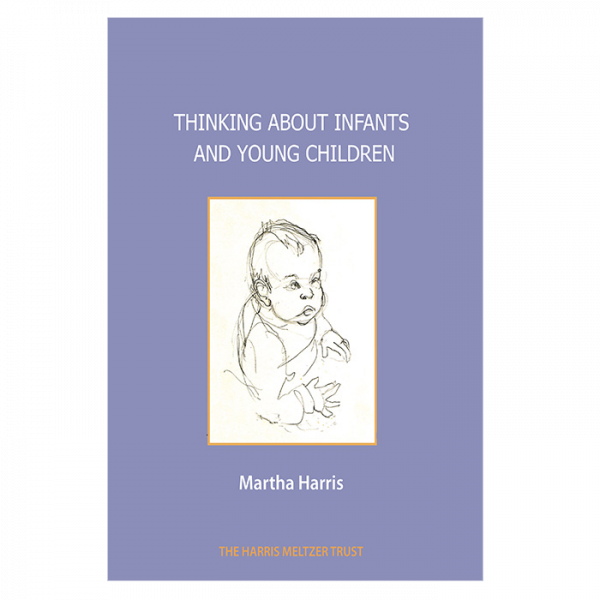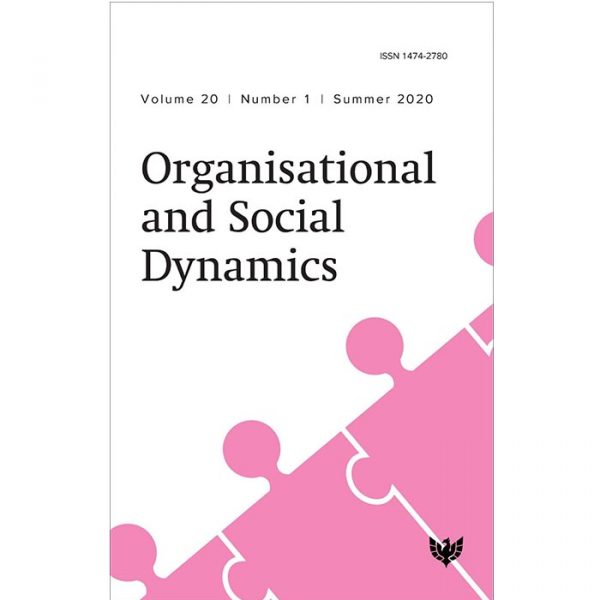Preface
Meg Harris Williams
BOOK ONE: YOUR ELEVEN-YEAR-OLD
Introduction
CHAPTER ONE
The eleven-year-old and school
Starting secondary school
How parents can help
The strains of competition and refusal to go to school
Edward: feeling lost and deprived of identity
Learning and competition
Comparison with others
When to help
Parents’ attitudes
School discipline: the uses of rules
CHAPTER TWO
Hobbies and interests
Collecting, keeping pets, games
Games and character
Mark: playing out sibling rivalries
Enthusiasms and crazes
Anne and her horse book
Reading—suspending judgement about the right choice of literature
Television and conversation
CHAPTER THREE
Family relationships
Roles in the family
Claire: the strain of having to be always good
Growing up within the family
The need for privacy
CHAPTER FOUR
Discipline, encouragement, and protection
Blaming other people’s children and exporting antisocial tendencies
Questioning our own attitudes
Punishments
Criticism, encouragement and praise
Why children disobey
Steve—his part in representing the school
How can we stop children doing things which are harmful to them?
CHAPTER FIVE
Gratitude, courtesy, and consideration for others
Behaviour towards the rest of the family
Setting an example: genuine courtesy
Religion, where does it come in?
Cheating with other children and at school
Margaret’s divided mind and the significance of “playing fair”
CHAPTER SIX
Your eleven-year-old and sex
Curiosity about sex: a new shyness
Unspoken collusion in parents
Menstruation: Jenny and its prestige value
Masturbation and “wet dreams”
Physical changes and appearance
CHAPTER SEVEN
The need for friends and for time to be alone
Conformity with other children
Privacy and the ‘grown up world’ of school
Family conflicts and friendships outside the family
Elsie’s parents become a couple again
CHAPTER EIGHT
Some eleven-year-olds in difficulty
Persistence of childish behaviour
Bed-wetting: David expresses an anger he does not know he feels
Laziness: Christopher and his mother’s inadequate side
Trying to understand the child’s behaviour difficulties
Robert and premature responsibilities
BOOK TWO: YOUR TWELVE–FOURTEEN-YEAR-OLD
Introduction
CHAPTER ONE
Relationships between parents and teachers
Encouraging your young adolescent’s grown-up self
Taking sides
Rachel: collision with the school
CHAPTER TWO
Enjoying school, expanding interests, and coping with competition
Nicola: discovering a personal history
Help with homework
Work pressures at school
The effect of parents’ attitudes to success
Facing up to failure
Ups and downs in feelings about school
Atmosphere at home
Work and competition
CHAPTER THREE
School, home, and work
Thinking about the future—feeling your way imaginatively
Robert: fabricating an answer
CHAPTER FOUR
Hobbies and interests
Play and its meaning
Reading and TV
The pleasures of discussion
Marion’s class: free-for-all or playing with ideas?
CHAPTER FIVE
Family relationships
Rivalry goes on
Brothers and sisters; can they harm each other’s personality?
CHAPTER SIX
Discipline, encouragement, and protection
The help of parental discipline
William: asking for safer parents
The importance of encouragement
Rules, regulations and punishment
Pocket money: respect for the child’s contribution
CHAPTER SEVEN
Courtesy and consideration for others
Courtesy is mutual
Aggression and timorousness
Courtesy as an inward growth
CHAPTER EIGHT
Your young teenager and sex
Menstruation
Adam: a case of delayed puberty
Adolescents’ theories about sex
Masturbation
Sex in books, films and TV
Unresolved feelings in parents
Protection against sex crimes and sexual promiscuity
CHAPTER NINE
Friends
Ups and downs in friendship
Fighting and feeling one’s own qualities
CHAPTER TEN
Bad companions
The expression of long hidden aggression
The pull to be like the rest
The bad influence: the wish to be blamed and absolved
Stealing as stealing from mother
BOOK THREE: YOUR TEENAGER
Introduction
CHAPTER ONE
The teenager at school
Can parents help in the school?
Providing special help outside school
Can you act as tutor yourself?
Preparing the ground by being a learner too
Learning with friends
Making use of the teacher
Irene and the art teacher.
Sharing knowledge
Getting things into the open
On not seeing eye-to-eye
Objectives with which we can all agree
The teenager enters the adult world
The teenager impinges on his parents’ world
Speaking well
When our child does better than his parents
CHAPTER TWO
Work and further education
Growth continues, learning continues
Who decides?
A decision can be modified
Anxieties about work
Conflicting expectations
Parental pressures
The loss of friends
Feelings exist, though unexpressed
Helping towards independence
Being—and feeling—understood
Seeing ourselves as others see us
On giving advice
Time for thought
CHAPTER THREE
Leisure interests and activities
After the party
“Will you come and join the dance?”
Recreations and their meanings
Adolescent driving and road safety
Recreation as an escape
Recreation as recreation.
CHAPTER FOUR
Family relationships
On being parents of teenagers
Disappointment with one’s children
Parents can help each other adjust to their family’s growing-up
A teenage girl’s view of her parents’ marriage
How attitudes to parents change
Recovery from disillusionment
From parental discipline to self-discipline
Rosalind: undesirable friendships
Changing relationships between brothers and sisters
Joanne and Lisa: teenage sisters
CHAPTER FIVE
The teenager and society
Teenage rebellion
Politics in the family
Society and the internal wars
Idealisation of other societies
Julia: flight to another country
Searching for a cause
Richard: flight to apathy and daydreams
The anti-social teenager
CHAPTER SIX
Sex and love
The basis of sex enjoyment
Identification with the parents’ marriage
The boy’s sexuality
The sexual development of the girl
Worries about appearance
Attitudes to babies
Abortion
The permissive society
Preparation for sex and parenthood
Matthew: teenage infatuation
Elizabeth: disappointment in love
CHAPTER SEVEN
Towards finding an identity and living creatively
Creativity
Changing attitudes
Introspection and relating to others
The struggle to find an identity
First identifications
Trying to be sincere
Identity realised in work and marriage
Fleeing from oneself
Jeremy
Flight to drugs
Jane: changing and resolving identifications
Learning to be more objective
Teenage impatience and panic about wasted time
Fear of the envy of parents and the grown-up world
Conquering fears of a malign Fate
APPENDIX I – Martha Harris’s philosophy of education
Meg Harris Williams
APPENDIX II – Extracts from A Psychoanalytic Model of the Child-in-the-Family-in-the-Community
Donald Meltzer and Martha Harris
APPENDIX III – Mattie as Educator
Donald Meltzer





Margaret Rustin, Head of Child Psychotherapy, Tavistock Clinic –
MARTHA HARRIS AS AN EDUCATOR
‘The impact she had on those she taught derived from her being, as well as from the power of her presentation of psychoanalytic ideas … Her approach to learning was a beautiful exemplification of Bion’s ideas. Many of her colleagues can bear witness to the subtlety of her judgments of people – and very many students benefited from her sensitive contact with the creative spark inside them which could elude other observers but which Mattie could seek out and nourish.’
Margot Waddell, psychoanalyst and child psychotherapist –
MARTHA HARRIS AS AN EDUCATOR
‘It was through Martha Harris that I first gained an inkling of what real teaching and learning is: of the distinction, for example, between knowledge and wisdom, between quantity and quality; of the diffidence and humility as well as the courage and resilience involved in the life-long venture of growing up. Her passionate commitment to helping a person, at whatever age or stage, to develop, tended to stir in others an answering passion, less imitative than aspirational – the desire to become more oneself and to have a mind of one’s own.’
Donald Meltzer, psychoanalyst –
MARTHA HARRIS AS AN EDUCATOR
‘By both background and inclination, Mattie was a scholar of English literature and a teacher. Nothing was more foreign to her nature than the administrative requirements that devolved upon her at the Tavistock. The way in which she came to terms with this was by framing a radical pedagogical method, many of whose central ideas came from Roland [her husband]. The central conviction, later hallowed in Bion’s concept of “learning from experience”, was that the kind of learning which transformed a person into a professional worker had to be rooted in the intimate relations with inspired teachers, living and dead, present and in books.’